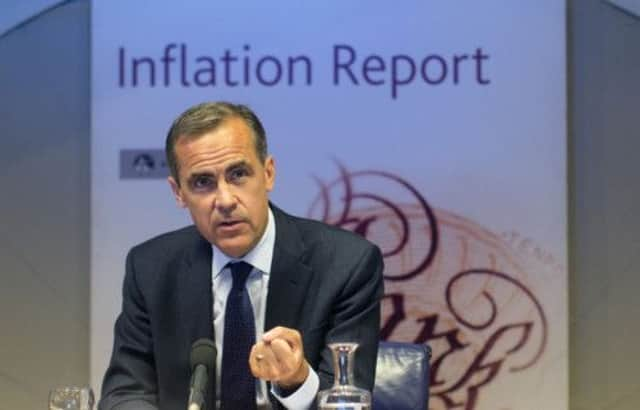Leaders: Carney’s eye on the past aids our future


“It is everlastingly true”, he said, “that on the whole the best guide to the future is to be found in a proper understanding of the past.”
These words might have been ringing in the ears of the new Governor of the Bank of England, Mark Carney, yesterday when he broke with Threadneedle Street precedent and announced that the 0.5 per cent UK interest rate would not rise until unemployment fell to 7 per cent or below, and added that he had no intention of cutting back the massive programme of quantitative easing which has pumped hundreds of billions of pounds into our crisis-hit economy.
Advertisement
Hide AdAdvertisement
Hide AdHow must we judge this initiative? Well, unique among central bankers, Mr Carney can look back on history, his own, for evidence that such a bold policy can work. As governor of the Bank of Canada, he made a similar commitment. As a result, the country’s economy, which had been suffering from the banking collapse meltdown, staged a miraculous recovery based, in part at least, on the stability Mr Carney’s promise engendered.
Now he is trying the same thing here. In principle, his radical proposal is to be welcomed. The UK is not Canada – our banks, for example, got into far more trouble than their Canadian cousins – but despite the differences, the idea of giving guidance on future policy is a sound one.
Knowing that, bar shocks to the economic system, our interest rates will remain low for up to three years will help businesses plan for the long term, is likely to stimulate a housing market already showing tentative signs of growth, and could give consumers greater confidence to spend.
There is a downside. Savers, who have suffered from the record low interest rates, will find it hard to get a decent return on their investments, and those who hope to retire soon may find pensions or annuities worth a lot less than they had hoped.
We should note that Mr Carney has been sensible enough to insert caveats into his promise, what he calls “knockouts”, which relate to inflation and other, unspecified, “significant threats to financial stability”. If inflation gets out of control, or some other unforeseen event knocks the country off course, then the Bank, quite reasonably, reserves the right to think again.
However, on balance, Mr Carney’s idea – which is supported by Chancellor George Osborne, who recruited him at considerable expense to the taxpayer – gives the UK its best chance of turning tentative economic recovery into lasting growth, which will benefit all of us if it produces, in particular, a reduction in unemployment and rising living standards. We hope the new Governor’s past is indeed a guide to this country’s economic future.
Festival diversity to be celebrated
Were Jonathan Mills, director of the Edinburgh International Festival, a government minister, he might find his latest statement about relations with the Fringe described by his civil servants as “brave”.
Mr Mills, with a typically flamboyant turn of phrase, says that there is a “giant smorgasbord on offer in Edinburgh”. He adds: “You don’t have to feel threatened by one that you are going to another or disloyal to one because you’re going to another. What’s wrong with loving high opera and stand-up comedy? The same person can do both and love both. I do.”
Advertisement
Hide AdAdvertisement
Hide AdIt is the kind of talk which, had it come from a minister, might have inspired an arched eyebrow and a response of, “Yes, very brave words minister” from Sir Humphrey, keen to deploy a suitable euphemism for his barely disguised contempt.
Yet such scepticism might well have been justified in the past. Relations between the
“official” Festival and the Fringe have not always been warm. Some Edinburgh Festival types tended to look down their noses at the noisy, anarchic Fringe upstarts with whom they were forced to share the capital. Fringe folk, in turn, would cock a snook at what they saw as the rather pretentious, and publicly subsidised, official lot.
Thankfully, those days are gone and Mr Mills, in his inimitable way, is right to point to the delights of the Caledonian smorgasbord that the festivals provide the hungry arts aficionado. You can, as he says, love high opera, and stand-up comedy. So let’s celebrate the Edinburgh festivals, all of them. As Mr Mills might have said: “Vive la différence.”